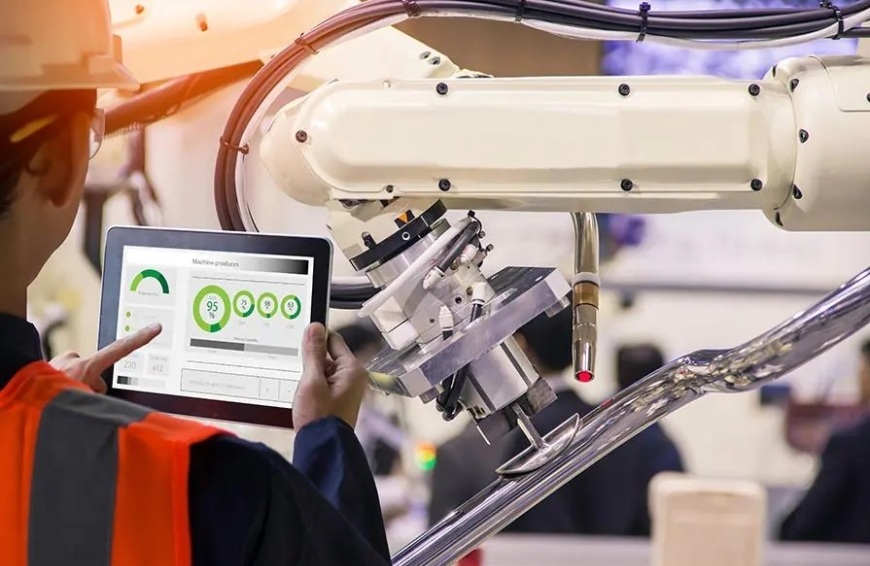 In today's dynamic industrial landscape, navigating the path towards a sustainable future demands a blend of strategic vision and innovative solutions. Mr. Ranjan Kumar, Director - Ethics, Legal, Sustainability and Corporate Affairs, SKF India and Southeast Asia, embodies this approach. With over two decades of experience, including instrumental roles in setting up robust legal, compliance & regulatory frameworks in various MNCs across sectors like FMCG, Telecom, Alcobev & Engineering, he now leads the charge in fostering ethical practices and driving robust sustainability initiatives at SKF.
In today's dynamic industrial landscape, navigating the path towards a sustainable future demands a blend of strategic vision and innovative solutions. Mr. Ranjan Kumar, Director - Ethics, Legal, Sustainability and Corporate Affairs, SKF India and Southeast Asia, embodies this approach. With over two decades of experience, including instrumental roles in setting up robust legal, compliance & regulatory frameworks in various MNCs across sectors like FMCG, Telecom, Alcobev & Engineering, he now leads the charge in fostering ethical practices and driving robust sustainability initiatives at SKF.
In this insightful article Mr. Kumar delves into the transformative impact of Industry 4.0 on sustainable manufacturing. He highlights the role of a circular economy, using SKF India's remanufacturing as an example. Recognizing collaboration's power, he showcases SKF's Open Innovation initiative for sustainable solutions. Despite challenges, he sees them as opportunities, expressing optimism about responsible business practices. Through his leadership, Mr. Kumar inspires businesses toward a better tomorrow.
Read the full article below for a comprehensive insight into the transformative future of sustainable manufacturing:
The intersection of innovative technologies and sustainability has become a focal point for companies aiming to build a path towards a responsible future. Industry 4.0 has led us in an era of interconnectedness and smart manufacturing. This paradigm shift is not only optimizing operational efficiency but also laying the groundwork for a more sustainable future. In the context of India, where industrial growth is on the rise, embracing Industry 4.0 technologies becomes imperative for achieving sustainability goals. From predictive maintenance to energy-efficient production processes, the integration of smart technologies is proving to be a game-changer in minimizing environmental impact while maximizing productivity.
Shift towards a Circular Economy and its Influence on Manufacturing
As we navigate the complexities of the modern industrial landscape, the shift towards a circular economy stands out as a key driver of sustainable manufacturing practices. Embracing a circular economy model entails rethinking traditional linear production processes, focusing on recycling, reusing, and reducing waste. In the Indian manufacturing sector, this shift is not only ecologically responsible but also economically advantageous. It opens avenues for innovation in product design, materials, and end-of-life processes, reducing the environmental footprint and fostering a more resilient and resource-efficient manufacturing ecosystem. For example, through our remanufacturing capabilities at SKF India, we help customers refurbish end-of-life bearings, thereby reducing consumption, industrial waste, and total cost of ownership. Remanufacturing extends the service life of bearings. It reduces environmental impact, increases asset reliability, and cuts costs.
Role of IIoT and Big Data in Supply Chain Optimization
In the pursuit of sustainability, optimizing the supply chain plays a pivotal role. Here, the convergence of Industrial Internet of Things (IIoT) and Big Data emerges as a powerful ally. Real-time data analytics and predictive algorithms enable companies to make informed decisions, minimizing waste, and enhancing overall supply chain efficiency. In the Indian context, where supply chain complexities are prevalent, leveraging IIoT and Big Data becomes a strategic imperative for achieving sustainability goals and ensuring responsible resource management.
Partnerships for a Sustainable Ecosystem
Sustainability is not a journey to be undertaken in isolation. Collaborative efforts and open innovation are at the heart of creating a sustainable ecosystem. Through strategic partnerships and collaborative initiatives, we can amplify the impact of sustainability initiatives. For example, at SKF India, we recently launched an Open Innovation initiative to accelerate innovation and create more sustainable and customer-oriented solutions under our intelligent and clean strategy. In line with SKF’s purpose: Together, we re-imagine rotation for a better tomorrow we are enabling co-creation of clean technologies and value-adding solutions., SKF aims to offer competitive advantages to customers and, at the same time, contributes to a sustainable world.
Challenges and Opportunities: Navigating the Path to Sustainability
While the strides towards sustainability are promising, it's essential to acknowledge the challenges that accompany this transformative journey. In a dynamic and competitive business environment, balancing economic goals with sustainable practices requires meticulous planning and adaptation. Regulatory frameworks, customer expectations, and the evolving nature of sustainability standards pose challenges that demand innovative solutions. Today manufacturers are facing significant challenges with the increasing digitalisation of the value chain, which includes design, manufacturing, procurement, and maintenance. The adoption of new technologies such as Industry 4.0 is not uniform due to differentiated capabilities, a lack of knowledge in use cases, minimal availability of design thinking, and limited skilled labour.
Yet, within these challenges lie opportunities for growth and differentiation. Companies that proactively address environmental and social concerns not only contribute to a better world but also position themselves as leaders in their respective industries. It's a testament to the fact that sustainability is not just a responsibility but a strategic imperative for long-term success.
The integration of innovative technologies into corporate sustainability practices is reshaping the future of industry in India, promising a profound impact on manufacturing practices. As we continue to embrace Industry 4.0, adhere to circular economy principles, and harness the power of IIoT and Big Data, we are not merely adopting sustainable practices – we are spearheading a transformative era of responsible and forward-thinking business. This shift has the potential to revolutionize manufacturing practices across India, establishing a new norm where innovation and sustainability coexist harmoniously. By setting elevated standards for corporate responsibility, this paradigm shift is poised to create lasting positive impacts on society and the environment, forging a future where Indian manufacturing is synonymous with cutting-edge technology, environmental responsibility, and societal well-being.
As a partner in nation-building, we consider it our responsibility to contribute towards addressing a few of the societal and environmental challenges present today. Globally, we have now revealed SKF’s purpose as ‘Together, we re-imagine rotation for a better tomorrow.’ Our Company’s reason for existence is our purpose, which seeks to drive positive change in the world. It centers around serving society, fostering innovation, promoting environmental well-being, and providing economic opportunities.





 In today's dynamic industrial landscape, navigating the path towards a sustainable future demands a blend of strategic vision and innovative solutions. Mr. Ranjan Kumar, Director - Ethics, Legal, Sustainability and Corporate Affairs, SKF India and Southeast Asia, embodies this approach. With over two decades of experience, including instrumental roles in setting up robust legal, compliance & regulatory frameworks in various MNCs across sectors like FMCG, Telecom, Alcobev & Engineering, he now leads the charge in fostering ethical practices and driving robust sustainability initiatives at SKF.
In today's dynamic industrial landscape, navigating the path towards a sustainable future demands a blend of strategic vision and innovative solutions. Mr. Ranjan Kumar, Director - Ethics, Legal, Sustainability and Corporate Affairs, SKF India and Southeast Asia, embodies this approach. With over two decades of experience, including instrumental roles in setting up robust legal, compliance & regulatory frameworks in various MNCs across sectors like FMCG, Telecom, Alcobev & Engineering, he now leads the charge in fostering ethical practices and driving robust sustainability initiatives at SKF.


.jpg)










